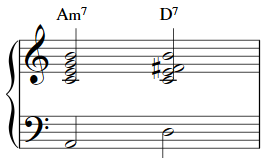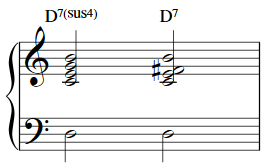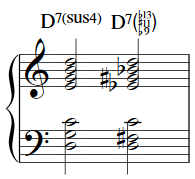In this article we’ll be discussing a few improvisation tips for pianists. These are the kinds of tips that are taught in music schools and practiced by the pros, so the good news is that you’re getting some cold-hard professional-grade knowledge. The challenge is that these improvisation tips are meant for long-term use and study, so they aren’t short-cuts or “magic pills.” Let’s get started!
Improvisation Tips for Pianists: Use Your Metronome on Beats 2 and 4
This tip will be quick because many of you have heard this quite often. But how many of us actually practice by using the metronome to click on beats 2 and 4, as opposed to all 4 beats? How many of us use the metronome regularly at all? Use it! It’s an incredibly valuable tool to acquiring a strong sense of time, which is hugely important to becoming an advanced player.
Improvisation Tips for Pianists: Don’t Play All Minor Chords as Minor 7th Chords
Many of us are guilty of this. We see a minor chord in a tune and we just plop down a minor 7th in our chord, even if the chord reads as simply minor, or minor 6th. And we usually improvise over minor chords by using a dorian mode, or perhaps a natural minor scale. Here’s an important tip: if you’re in a minor key, try playing the minor “i” chord as a minor 6th chord, or a minor-major-7th chord. The sound will be significantly different and more dissonant than the more rounded minor 7th sound. And when soloing over these minor chords, try using the harmonic or melodic minor scales for improvisation. These scales can also create more tension in your solos.
Improvisation Tips for Pianists: Try Playing a sus4 Before Resolving to the Dominant Chord
This is a great tip that you can use when soloing, but also when arranging. Here’s the idea: we see “ii-V” progressions all the time in jazz tunes, such as this one:
But what many beginning students don’t realize is that you can easily turn this progression into a D7sus4 that resolves to D7 simply by playing the exact same chords and putting a ‘D’ in the bass under both:
Taking things a step further you can create more tension in your arranging by moving from the D7sus4 chord to a D7 chord with altered extensions, such as this:
… or using that same resolution to create tension in your soloing, such as this:
Improvisation Tips for Pianists: Using 4th-Based Solo Lines
Listen to McCoy Tyner (tunes such as “Passion Dance,” for example) if you like the sound of fourths in improvisation and comping. Fourths used in soloing and comping are referred to as quartals, and this sound is very unique and effective. It’s easier to practice these kinds of structures over static harmonies (tunes that use one chord for long periods of time, like “Passion Dance,” “So What,” or “Impressions”). A great way to start practicing is to simply take a chord – D minor 7, for example – and practice building fourths. Then add some rhythmic variety to start creating solo ideas.







Hello willie,
I m very thanksful to you. I m getting so music information from you.
Thank you again.